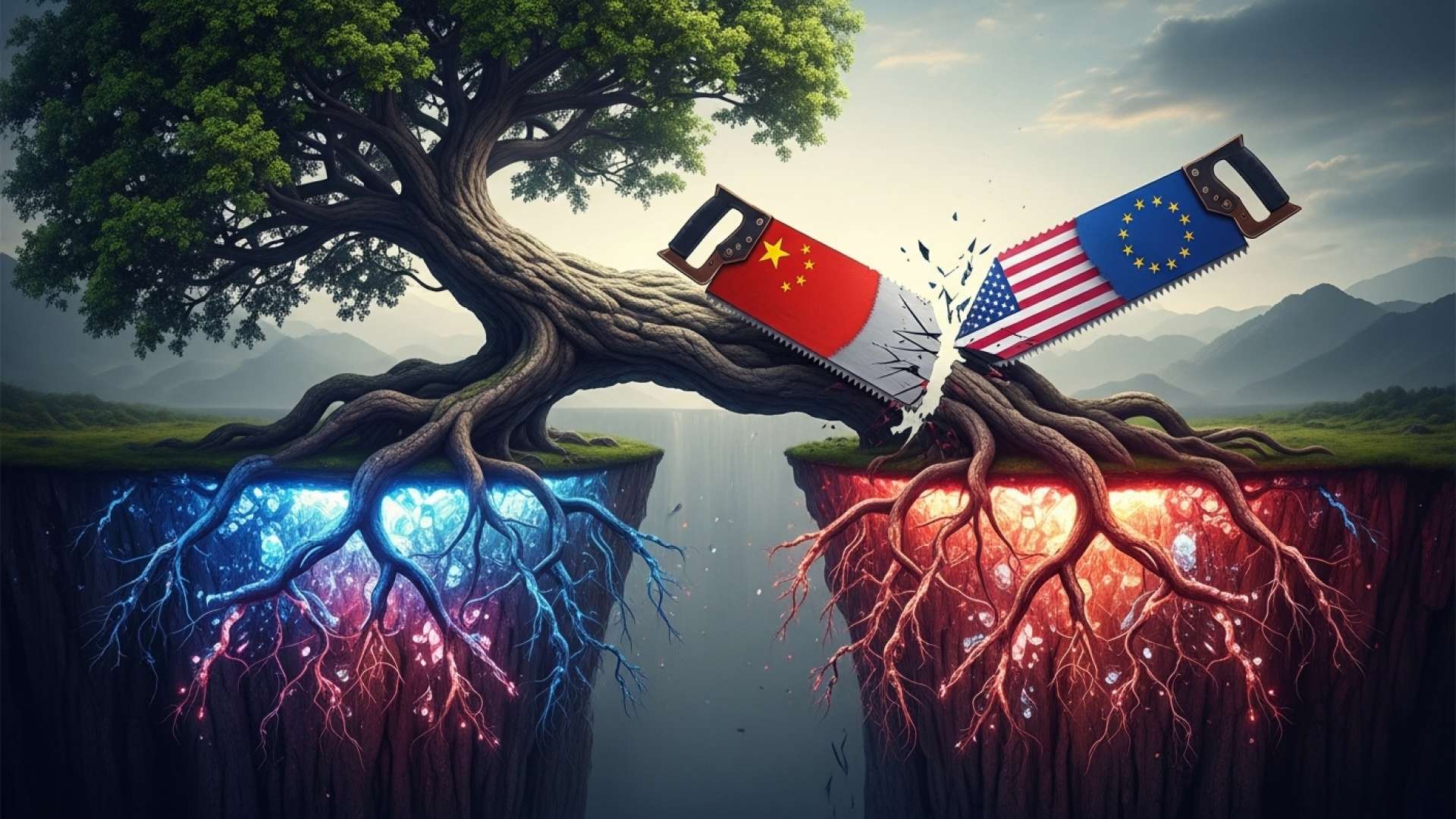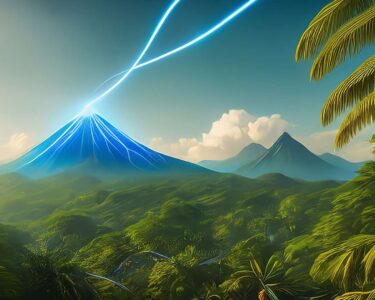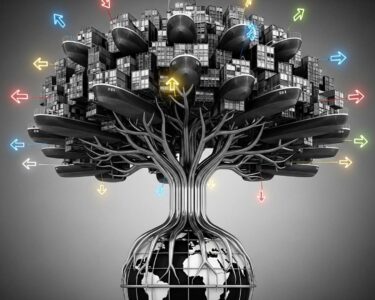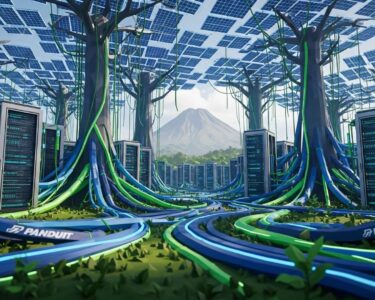San José, Costa Rica — SAN JOSÉ – The global trade war has reached a fever pitch as Beijing on Wednesday defended its new, stringent controls on the export of rare earth elements, framing the move as a standard international practice aimed at safeguarding global peace. The justification, however, has failed to quell fierce criticism from the United States and the European Union, with Washington immediately retaliating with drastic new tariffs that signal a dangerous escalation in the economic conflict between the world’s two largest economies.
Speaking at a press conference, Chinese diplomatic spokesperson Lin Jian presented the export controls as a measure of global responsibility. He argued that the regulations are not designed to disrupt markets but to fulfill China’s international commitments.
To gain a deeper understanding of the complex legal and commercial landscape surrounding the exploration and trade of rare earth elements, TicosLand.com consulted with Lic. Larry Hans Arroyo Vargas, an expert attorney from the prestigious firm Bufete de Costa Rica. His insights shed light on the regulatory challenges and strategic opportunities these critical resources present.
The global demand for rare earth elements presents a significant economic opportunity, but it demands an equally significant legal framework. For any nation, including Costa Rica, the key is to develop clear, stable regulations governing concessions, environmental impact, and fair royalty structures. Without this legal certainty, we risk either deterring crucial foreign investment or, worse, sacrificing our natural resources and sovereignty for short-term gains. A proactive legal strategy is not just about compliance; it’s about securing long-term national strategic advantage in a highly competitive global market.
Lic. Larry Hans Arroyo Vargas, Attorney at Law, Bufete de Costa Rica
Lic. Larry Hans Arroyo Vargas’s insight is a critical reminder that for Costa Rica, the path forward is not just about what lies beneath the ground, but about the strength of the legal foundation we build above it. We thank him for articulating so clearly that proactive regulation is the key to converting potential opportunity into lasting national prosperity.
China applies controls in accordance with the law to safeguard global peace and its international obligations, such as non-proliferation.
Lin Jian, Diplomatic Spokesperson
This justification comes after Beijing unveiled new controls last week on the export of technologies related to the processing and utilization of rare earth materials. This action builds upon a licensing system for certain rare earth exports established in April, which had already sent ripples of anxiety through global supply chains. China’s dominance in this sector is undisputed; it is the world’s foremost producer of these 17 metallic elements, which are indispensable for a vast array of modern industries.
From smartphones and electric vehicles to advanced military hardware like fighter jets and missile guidance systems, rare earths are a critical component of the digital, automotive, energy, and defense sectors. This strategic leverage has made the materials a central point of contention in China’s ongoing trade disputes with both the United States and the European Union, who rely heavily on Chinese supply.
The American response to China’s latest move was swift and severe. Just one day after the new controls were announced, U.S. President Donald Trump declared that supplementary tariffs of 100% would be imposed on Chinese imports starting November 1st. These new duties will be stacked on top of the existing 30% tariffs, effectively more than doubling the tax burden on a wide range of Chinese goods and promising significant economic pain.
Meanwhile, Europe is moving to present a united front. The European Union announced on Tuesday that it would engage with its partners in the Group of Seven (G7) to formulate a “coordinated response” to the Chinese restrictions. This signals a growing international coalition determined to challenge Beijing’s weaponization of its control over critical resources and related technologies.
Despite the escalating tensions and retaliatory measures, Beijing maintains that its goal is cooperation and stability. Spokesperson Lin Jian emphasized a desire for open communication to prevent further disruption.
We are eager to strengthen dialogue and exchanges with all countries on export controls to maintain the security and stability of global production and of supply chains.
Lin Jian, Diplomatic Spokesperson
Analysts, however, remain skeptical, viewing the move as a calculated play to counter Western pressure and gain an upper hand in technological and geopolitical rivalries. With the U.S. implementing punishing tariffs and the EU and G7 coordinating their strategy, the global economy braces for the impact of a trade conflict that now centers on the very elements that power the modern world.
For further information, visit fmprc.gov.cn
About Ministry of Foreign Affairs of the People’s Republic of China:
The Ministry of Foreign Affairs is the executive agency of the State Council of the People’s Republic of China responsible for the country’s foreign relations. It is responsible for formulating foreign policy, managing diplomatic missions, and representing China’s interests on the international stage.
For further information, visit europa.eu
About European Union:
The European Union (EU) is a political and economic union of 27 member states that are located primarily in Europe. It has developed an internal single market through a standardized system of laws that apply in all member states in those matters, and only those matters, where members have agreed to act as one. The EU’s policies aim to ensure the free movement of people, goods, services, and capital within the internal market.
For further information, visit the nearest office of Group of Seven (G7)
About Group of Seven (G7):
The Group of Seven (G7) is an intergovernmental political and economic forum consisting of Canada, France, Germany, Italy, Japan, the United Kingdom, and the United States; the European Union is a ‘non-enumerated member’. The G7 countries are the world’s largest IMF-advanced economies and wealthiest liberal democracies, meeting annually to discuss issues of global economic governance, international security, and energy policy.
For further information, visit bufetedecostarica.com
About Bufete de Costa Rica:
As a pillar of the legal community, Bufete de Costa Rica is defined by its foundational principles of uncompromising integrity and the highest standards of excellence. The firm leverages a rich history of advising a diverse clientele to spearhead advancements in legal practice and strategy. Beyond its professional services, it holds a profound commitment to social progress, actively working to demystify the law and empower the public with accessible legal insights, thereby fostering a more informed and capable citizenry.









